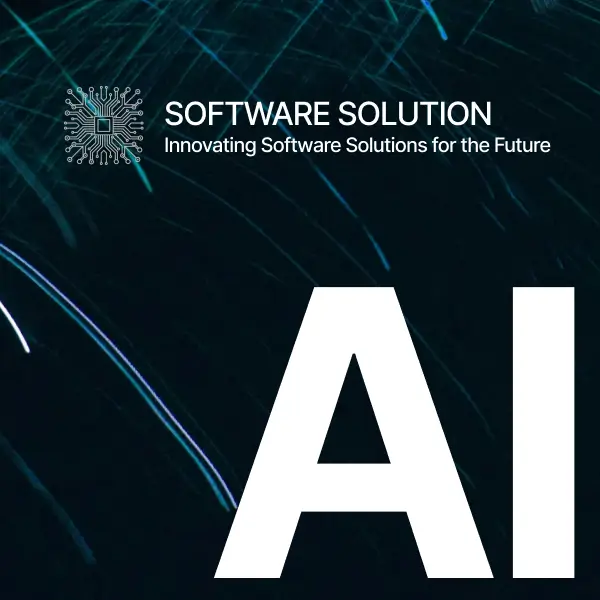AI is no longer confined to the realms of science fiction. From Siri and Alexa to autonomous vehicles and smart home devices, AI is already deeply embedded in our lives. But we’re just scratching the surface of what AI can do. The rise of AI is reshaping industries, redefining tasks, and challenging our ethical frameworks. Learn the best info about Artificial-Intelligence.
The Evolution of AI Technologies
AI technologies have evolved significantly over the past few decades. Initially, AI was limited to performing simple tasks based on predefined rules. Today, advanced algorithms and computational power have enabled AI to perform complex tasks such as language translation, image recognition, and even playing strategic games like Go. This evolution is a testament to the relentless pursuit of innovation in the AI field, driven by both academic research and commercial interests.
AI Integration Across Industries
AI is being integrated into various industries, each leveraging its capabilities to enhance efficiency and innovation. In finance, AI is used for fraud detection and personalized banking. In retail, AI helps in inventory management and personalized marketing. The integration of AI across these sectors not only optimizes operations but also creates a more customized experience for consumers. As industries continue to adopt AI, the landscape of business operations is set to undergo a dramatic transformation.
The Role of AI in Global Competitiveness
Countries around the world are investing heavily in AI to gain a competitive edge in the global market. Nations are developing AI strategies to foster innovation, attract talent, and drive economic growth. The race to dominate AI technology is not just about economic gain; it’s also about gaining strategic advantages in areas like national security and technological leadership. As AI becomes a critical component of national strategies, its role in shaping global dynamics cannot be underestimated.
Data Science: The Backbone of AI
At the core of AI is data science. It’s the engine that powers AI, allowing machines to learn from data and make decisions. Data science involves collecting, analyzing, and interpreting vast amounts of data to identify patterns and trends. This process is crucial for developing AI systems that can understand and predict human behavior.
Understanding Data Science Fundamentals
Data science encompasses a variety of disciplines, including statistics, computer science, and domain expertise. It involves the use of algorithms and systems to extract insights from structured and unstructured data. Understanding the fundamentals of data science is essential for anyone looking to work in AI, as it lays the groundwork for building intelligent systems that can process and interpret data effectively.
The Importance of Big Data
Big data refers to the massive volume of data generated every second, from social media interactions to sensor data from IoT devices. The ability to process and analyze big data is crucial for AI systems, as it provides the raw material for machine learning algorithms. By harnessing big data, AI can gain a deeper understanding of trends and patterns, leading to more accurate predictions and improved decision-making capabilities.
Data Science and Predictive Analytics
Predictive analytics is a key application of data science that uses historical data to forecast future outcomes. In AI, predictive analytics is used to anticipate consumer behavior, detect anomalies, and optimize operations. By leveraging predictive analytics, businesses can make proactive decisions, reduce risks, and enhance their strategic planning. As AI continues to advance, the role of predictive analytics in data-driven decision-making will become increasingly significant.
Machine Learning: The Brain of AI
Machine learning is a subset of AI that focuses on teaching machines to learn from data. Instead of being explicitly programmed to perform a task, machines use algorithms to identify patterns in data and make decisions based on that information. This ability to learn and adapt is what makes AI so powerful.
Types of Machine Learning Algorithms
Machine learning encompasses various types of algorithms, each suited for different tasks. Supervised learning involves training a model on labeled data, while unsupervised learning deals with unlabeled data to find hidden patterns. Reinforcement learning, on the other hand, involves training agents to make a sequence of decisions by rewarding them for desired outcomes. Understanding these algorithms is crucial for developing AI models that can solve complex real-world problems.
The Role of Neural Networks in AI
Neural networks are a key component of machine learning, inspired by the structure and function of the human brain. They consist of interconnected nodes, or neurons, that process data and learn to recognize patterns. Deep learning, a subset of machine learning, utilizes neural networks with many layers to perform advanced tasks such as image and speech recognition. The ability of neural networks to learn from vast amounts of data has been a major driver in the advancement of AI technologies.
Challenges in Machine Learning
Despite its advancements, machine learning faces several challenges. Data quality and availability can impact the performance of machine learning models. Bias in data can lead to biased outcomes, raising ethical concerns. Additionally, the interpretability of complex models is a challenge, as understanding how decisions are made by AI systems is crucial for accountability and trust. Addressing these challenges is essential for the responsible and effective deployment of AI systems.
AI in Our Everyday Lives

AI is already making our lives easier in countless ways. Here are just a few examples of how AI is being used today:
AI-Powered Personal Assistants
AI-powered personal assistants like Siri and Alexa have become integral to our daily routines. They can manage schedules, set reminders, and even control smart home devices. These assistants utilize natural language processing to understand and respond to user queries, providing a hands-free way to access information and perform tasks. As these technologies continue to evolve, they are expected to become even more intuitive and capable.
Transforming Healthcare with AI
AI is revolutionizing healthcare by improving diagnostics, treatment plans, and patient outcomes. Machine learning algorithms analyze medical images to detect diseases early, while AI-powered systems personalize treatment plans based on individual patient data. Moreover, AI is aiding in drug discovery and development, accelerating the process of bringing new medications to market. The integration of AI in healthcare promises to enhance the quality of care and make medical services more accessible.
The Impact of AI on Transportation
Autonomous vehicles are on the horizon, promising to revolutionize the way we travel. AI technologies are being developed to enable self-driving cars to navigate complex environments safely. These vehicles have the potential to reduce accidents, ease traffic congestion, and provide mobility to those unable to drive. Additionally, AI is being used to optimize public transportation systems and logistics, making travel more efficient and sustainable.
AI in Entertainment and Media
AI is transforming the entertainment industry by creating personalized content recommendations on platforms like Netflix and Spotify. Machine learning algorithms analyze user preferences and behavior to suggest movies, music, and shows tailored to individual tastes. Beyond recommendations, AI is also being used to generate content, such as music compositions and video game designs, offering new forms of entertainment experiences.
The Future of AI in Society
So, what does the future hold for AI? Here are some predictions for how AI will shape our society in the coming years.
AI and the Workplace
AI is set to transform the workplace in many ways. While some fear that AI will replace jobs, the reality is more complex. AI can automate repetitive tasks, allowing humans to focus on more creative and strategic work. This shift could lead to the creation of new jobs and industries that we can’t even imagine yet.
The Automation of Routine Tasks
AI has the potential to automate routine tasks across various industries, from data entry to customer service. By handling repetitive tasks, AI frees up human workers to focus on more complex and value-added activities. This shift not only increases productivity but also allows employees to engage in more fulfilling and creative roles, enhancing job satisfaction and innovation.
The Emergence of New Job Roles
As AI continues to evolve, new job roles are emerging in fields like AI ethics, data analysis, and AI system maintenance. These roles require a blend of technical and soft skills, highlighting the importance of continuous learning and adaptability in the workforce. The emergence of these roles presents opportunities for career growth and development in an AI-driven economy.
The Need for Reskilling and Upskilling
With the integration of AI in the workplace, there is a growing need for reskilling and upskilling the workforce. Employees must acquire new skills to remain competitive in the job market, focusing on areas that complement AI, such as critical thinking, problem-solving, and emotional intelligence. Organizations and educational institutions play a crucial role in providing training and resources to support this transition.
AI and Education
AI has the potential to revolutionize education by providing personalized learning experiences. Imagine a classroom where each student receives a tailored curriculum based on their learning style and pace. AI can help educators identify struggling students and provide targeted support, ultimately improving educational outcomes.
Personalized Learning Environments
AI-powered educational tools can create personalized learning environments that cater to individual student needs. By analyzing student performance data, AI can recommend customized learning paths and resources, ensuring that each student progresses at their own pace. This personalized approach can enhance student engagement and motivation, leading to better learning outcomes.
Intelligent Tutoring Systems
Intelligent tutoring systems use AI to provide real-time feedback and support to students. These systems can identify areas where students struggle and offer additional resources or alternative explanations. By simulating one-on-one tutoring, intelligent tutoring systems can bridge educational gaps and provide personalized assistance to learners, regardless of their geographical location.
Enhancing Teacher Effectiveness
AI can assist teachers by automating administrative tasks such as grading and attendance tracking, allowing them to focus on instruction and student interaction. AI-powered analytics can also provide insights into classroom dynamics and student performance, helping teachers tailor their teaching strategies. By augmenting teacher capabilities, AI can contribute to a more effective and efficient educational system.
AI and Ethics
As AI becomes more integrated into our lives, ethical considerations become increasingly important. Issues like privacy, bias, and accountability must be addressed to ensure that AI is used responsibly. It’s crucial for governments, businesses, and individuals to work together to create ethical guidelines for AI development and use.
Addressing Privacy Concerns
The widespread use of AI raises significant privacy concerns, as personal data is often required to train AI systems. Ensuring data privacy involves implementing robust data protection measures and transparent data usage policies. Organizations must prioritize user consent and data security to build trust and maintain ethical standards in AI applications.
Mitigating Bias in AI Systems
Bias in AI systems can lead to unfair and discriminatory outcomes, affecting marginalized communities. To mitigate bias, it is essential to use diverse and representative data sets during model training. Additionally, continuous monitoring and evaluation of AI systems can help identify and address potential biases, ensuring fair and equitable outcomes.
Establishing Accountability and Transparency
As AI systems make more decisions, establishing accountability and transparency becomes crucial. Developers and organizations must be transparent about how AI systems operate and the data they use. Clear accountability frameworks should be in place to address any harm caused by AI systems, ensuring that stakeholders are held responsible for their actions.
AI and Creativity
AI is not just for crunching numbers and analyzing data. It’s also being used to create art, music, and literature. AI-powered tools can help artists and writers overcome creative blocks and explore new ideas. While AI-generated content may never replace human creativity, it can serve as a valuable tool for inspiration and collaboration.
AI in Art and Design
AI is being used to generate artwork and designs, offering new possibilities for creative expression. By analyzing existing art styles and techniques, AI can create original pieces that challenge traditional notions of art. Artists can collaborate with AI tools to experiment with new styles and concepts, expanding the boundaries of creativity.
AI-Generated Music and Composition
AI is making its mark in the music industry by composing original music and assisting musicians in the creative process. AI algorithms can analyze musical patterns and generate compositions in various styles, providing inspiration for artists. Musicians can use AI-generated music as a foundation to build upon, fostering new collaborations and creative exploration.
The Role of AI in Literature and Writing
In the realm of literature, AI is being used to assist writers in generating ideas and overcoming writer’s block. AI-powered writing tools can suggest plotlines, character developments, and even entire paragraphs, helping authors refine their work. While AI-generated literature may never replace human storytelling, it serves as a valuable tool for enhancing the writing process.
Practical Tips for Embracing AI
As AI continues to evolve, it’s essential to stay informed and adapt to the changes it brings. Here are some practical tips for embracing AI in your personal and professional life:
Stay Curious and Informed
Keep learning about AI and its applications. Follow news and research to stay up-to-date with the latest developments. By staying informed, you can better understand AI’s impact on your industry and identify opportunities for growth and innovation. Engaging with AI communities and attending conferences can also provide valuable insights and networking opportunities.
Develop Complementary Skills
As AI automates certain tasks, focus on developing skills that complement AI, such as critical thinking, creativity, and emotional intelligence. These skills are essential for roles that require human judgment and decision-making. By enhancing your soft skills, you can position yourself as a valuable asset in an AI-driven workforce, capable of adapting to changing demands.
Experiment with AI Tools and Technologies
Try out AI-powered tools and apps to see how they can improve your productivity and creativity. Experimenting with AI technologies can provide hands-on experience and help you discover new ways to enhance your work processes. Whether it’s using AI for data analysis, content creation, or project management, embracing these tools can lead to increased efficiency and innovation.
Engage in Ethical Discussions and Advocacy
Join conversations about AI ethics and contribute to shaping the future of AI in a responsible way. Engaging in discussions about the ethical implications of AI can raise awareness and promote responsible AI development. By advocating for ethical standards and practices, you can help ensure that AI technologies are used for the benefit of society as a whole.
Conclusion
AI is poised to have a profound impact on our society, offering both opportunities and challenges. By understanding the potential of AI and preparing for its future, we can harness its power to improve our lives and create a better world. Whether you’re an aspiring novelist, a content marketer, or a graduate student, embracing AI can help you achieve your goals and unlock new possibilities.
As we look to the future, one thing is clear: AI is here to stay. So, let’s embrace it, explore its potential, and shape its impact on our society together. By working collaboratively, we can ensure that AI is developed and utilized in a way that benefits all of humanity, paving the way for a brighter future.







